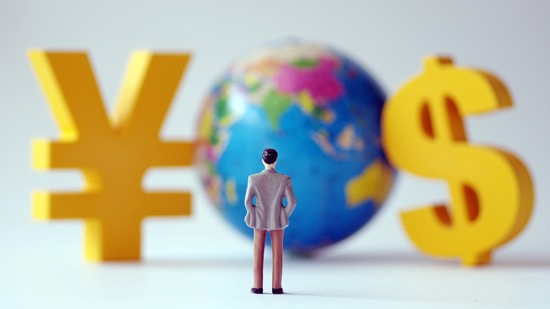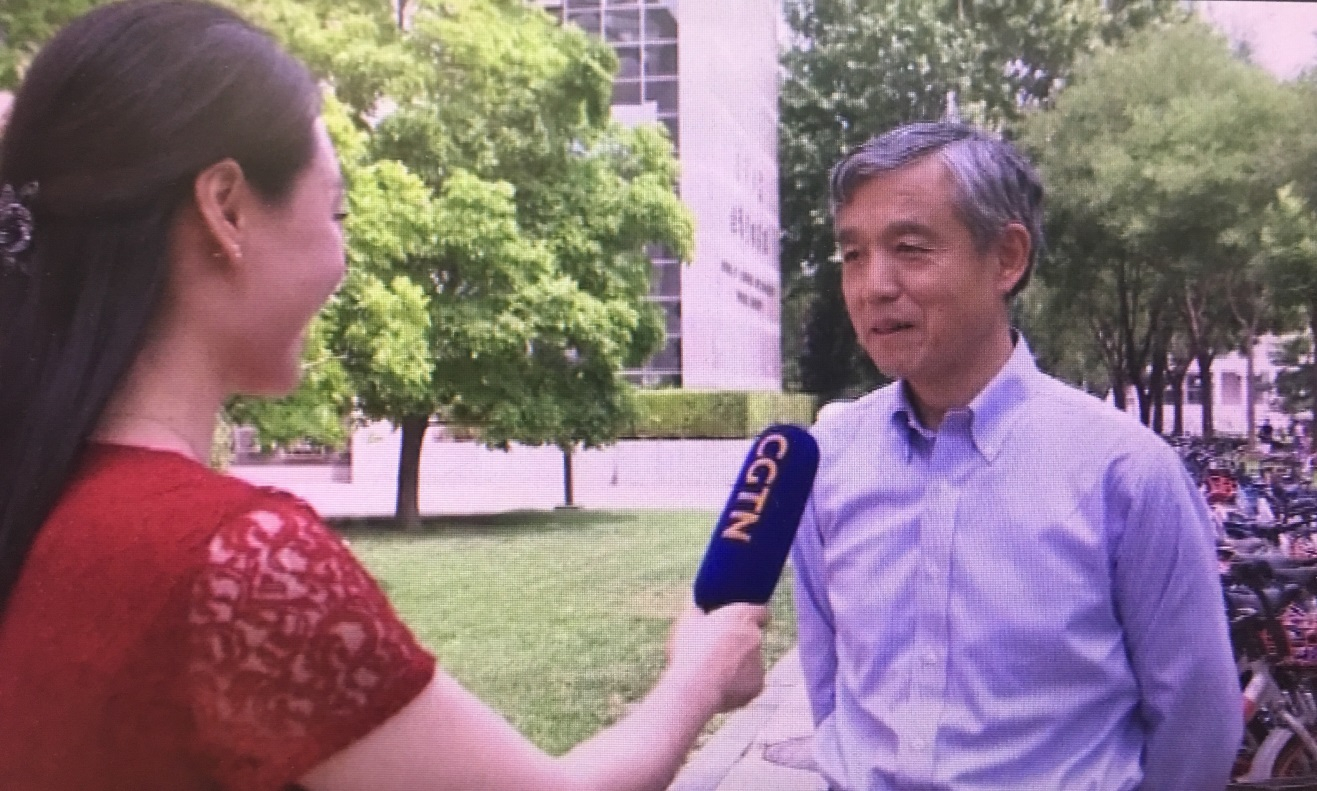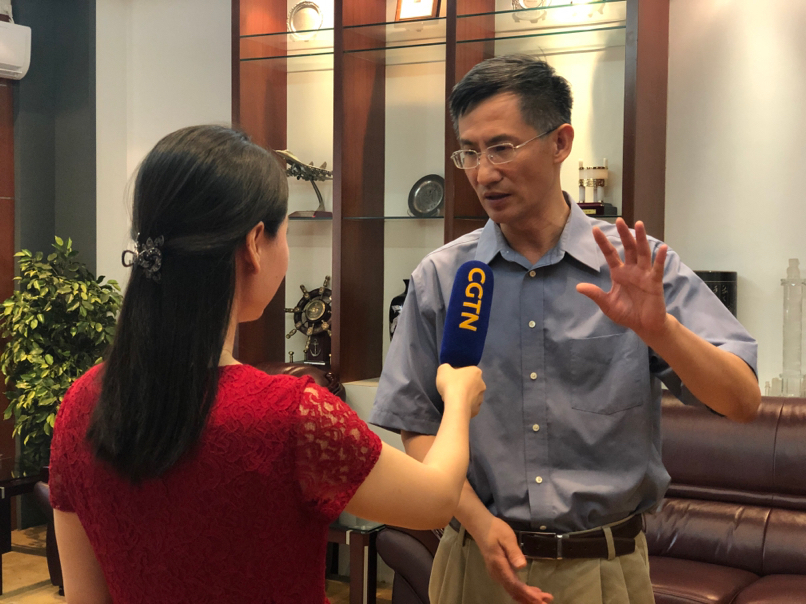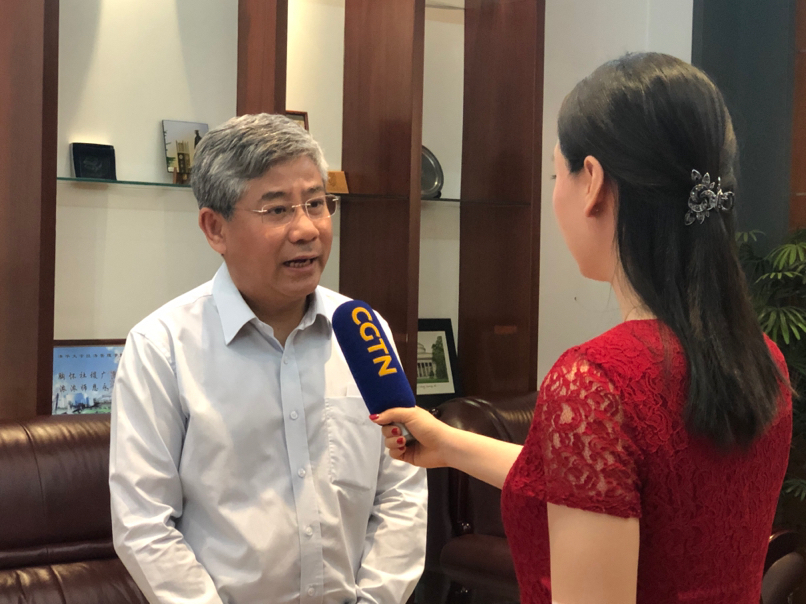

Top scholars gathered at a symposium at Tsinghua University to discuss China-U.S. trade ties. What impact will the trade war have for both sides, and the world economy as a whole? What measures should be taken to safeguard multilateralism?
Scholars and experts believe that no one will benefit from the trade tensions between China and the U.S.
Li Daokui, director of the Academic Center for Chinese Economic Practice and Thinking at Tsinghua University, hosted the discussion. Li said that as a growing engine of the world economy, China is taking responsibility for safeguarding the global free trade system and making efforts to stabilize it.
Other experts said that for China, it's crucial for domestic businesses to diversify in foreign trade markets to promote greater opening-up.

Professor Xue Lan, dean of the Schwarzman Scholars of Tsinghua University, talks to CGTN. /CGTN Photo
Professor Xue Lan, dean of the Schwarzman Scholars of Tsinghua University, said: "In terms of the Chinese people and Chinese government, they are very determined to avoid the further deteriorating of the two countries' trade ties. We certainly want to collaborate and be more open, and I think that has been demonstrated by many measures taken by China and further policies of reform. The determination is very clear."
Xue also noted, however, that if agreement can't be reached, then China will have to take a firmer stance. "And the second thing is that Chinese people and the government are keenly aware that if the trade disputes continue, I think China may have to take whatever measures necessary to withstand the pressure applied by the U.S. government."
In the name of protecting domestic industries, Washington has placed steep tariffs on billions of U.S. dollars' worth of products from China, in a heavy blow to the two countries' economic and trade relations.
Experts said both China and the U.S. play important roles in the global industrial chain, supply chain and value chain, adding that the escalation of trade frictions will surely disrupt the existing world economic chain and lead to chaos in the global market.

Ju Jiandong, Unigroup chair professor at Tsinghua University's PBC School of Finance, talks to CGTN. /CGTN Photo
Ju Jiandong, Unigroup chair professor at Tsinghua University's PBC School of Finance, said: "Twenty-four percent of the inputs in the United States' electronics industry are imported from China. And the manufacturing industry in China accounts for 28 percent of global manufacturing sectors. You take 28 percent of the global manufacturing sector out of the global value chain, and that could be a disaster."

Bai Chong-en, dean of the School of Economics and Management of Tsinghua University, talks to CGTN. /CGTN Photo
Bai Chong-en, dean of the School of Economics and Management at Tsinghua University, said that the uncertainty created by the trade friction is extremely harmful to both economies.
"For example, some measures taken by the U.S. government have disrupted the global value chain. And those U.S. companies that are part of the global value chain, they are facing uncertainty as well. One example is Qualcomm. They are an important supplier to Huawei, but now the U.S. government is banning U.S. companies from making those supplies, and Qualcomm, I think, they are hurt and harmed very much. So I think the trade dispute is not good for the U.S. economy at all," Bai said.
China and the U.S. are now each other's biggest trading partner and important investment destinations. The past and present have proven that China and the U.S., as the world's two largest economies, stand to benefit from cooperation, and lose from confrontation. And experts have said cooperation is the best choice for both sides.

Copyright © 2018 CGTN. Beijing ICP prepared NO.16065310-3
Copyright © 2018 CGTN. Beijing ICP prepared NO.16065310-3